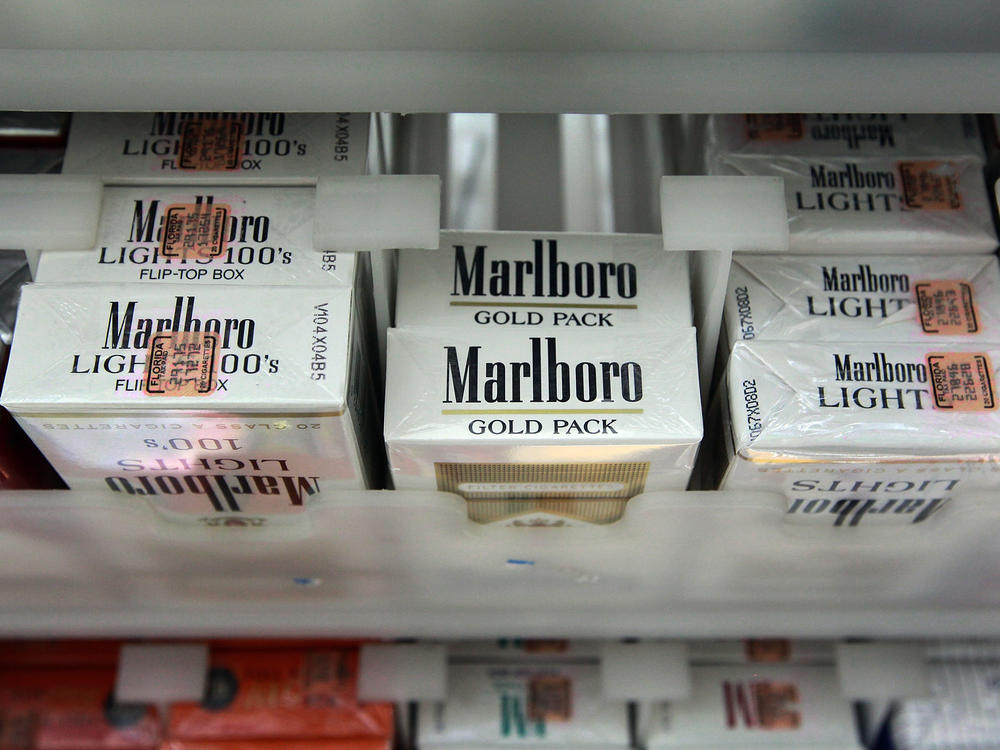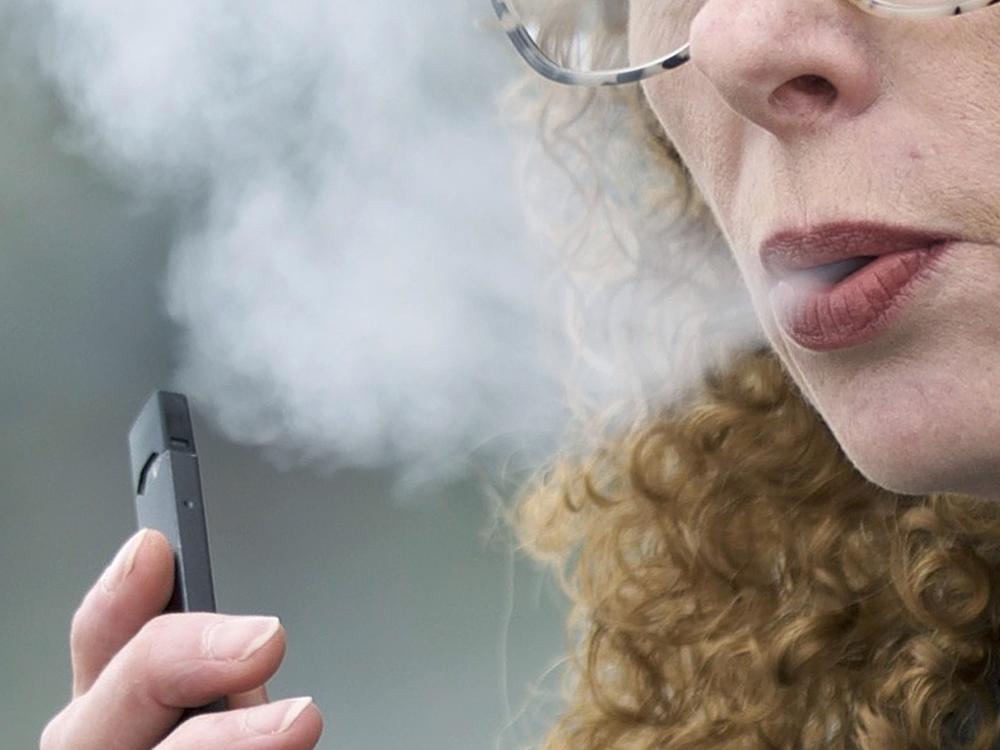Section Branding
Header Content
Marlboro Maker CEO Says The Company Plans To Stop Selling Smokes In The U.K.
Primary Content
Tobacco giant Philip Morris International says it will stop selling cigarettes in the United Kingdom within the next decade — including the company's iconic Marlboro brand.
"It will disappear," the company's CEO Jacek Olczak said in an interview with The Mail on Sunday. "The first choice for consumers is they should quit smoking. But if they don't, the second best choice is to let them switch to the better alternatives."
The development is part of Philip Morris International's reinvention as it abandons traditional tobacco products.
Olczak became the company's CEO in May and plans to lead the company's "smoke-free" transformation. He said the company's new mission is to find and provide "less harmful alternatives to cigarettes" to the millions of people who would otherwise still smoke.
In May, he said, "Our ambition is that more than half of our net revenues will come from smoke-free products in 2025."
Philip Morris International is not affiliated with Philip Morris USA, which sells Marlboro in the U.S., where the brand has more sales than the next seven leading competitors combined.
U.K. aims for smoke-free future, too
The company's efforts are part of a much wider societal change in attitudes toward smoking, especially in the United Kingdom. The government recently announced its goal to make England smoke-free by 2030. The U.K will be considered "smoke-free" when the nation's smoking rates are less than 5%.
The pushback against cigarettes over the past several years is tied to the severe health problems caused by smoking highly addictive tobacco around the world.
The World Health Organization says that "the tobacco epidemic is one of the biggest public health threats the world has ever faced." It kills more than 8 million people a year — 7 million of those deaths are directly linked to tobacco use, according to the WHO. More than 1 million other deaths are from nonsmokers being exposed to secondhand smoke.
Citing the nation's chief medical officer, a recent U.K. government report said smoking will kill more people in the U.K. than COVID-19, both this year and in 2020.
"Recent analysis shows it kills up to two thirds of long-term users," the report said.
About 14% of the U.K. adult population smoke. Based on current trends, the most disadvantaged communities will not be smoke-free until 2045, according to the report.
Scotland's ambition is to achieve this smoke-free goal by 2034, with no dates set yet for Wales or Northern Ireland.
Philip Morris bets on cigarette alternatives
Philip Morris International is not abandoning products geared toward smokers entirely despite its pledge.
It's focusing more on developing tobacco heating systems, such as electronic cigarettes that still "create a nicotine-containing tobacco vapor," the company said.
The cigarette maker says on its website "smoke-free products" are not "risk free" but "are a far better choice than cigarette smoking."
Philip Morris recently announced it will acquire Vectura Group, a British pharmaceuticals company that produces inhalers, and Denmark-based Fertin Pharma, a nicotine gum maker. The purchase of Vectura drew criticism from people who found issue with a tobacco company, that while still making money from cigarettes, is positioning itself as one that is anti-smoking.
Copyright 2021 NPR. To see more, visit https://www.npr.org.
Correction
A previous version of this story incorrectly said that Philip Morris International CEO Jacek Olczak spoke with The Daily Mail newspaper. In fact, he spoke with The Mail on Sunday.



